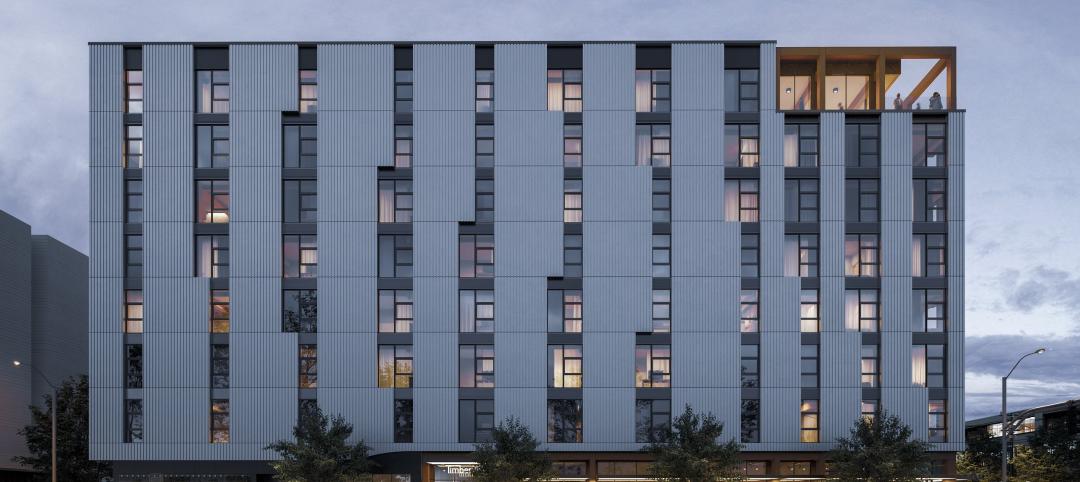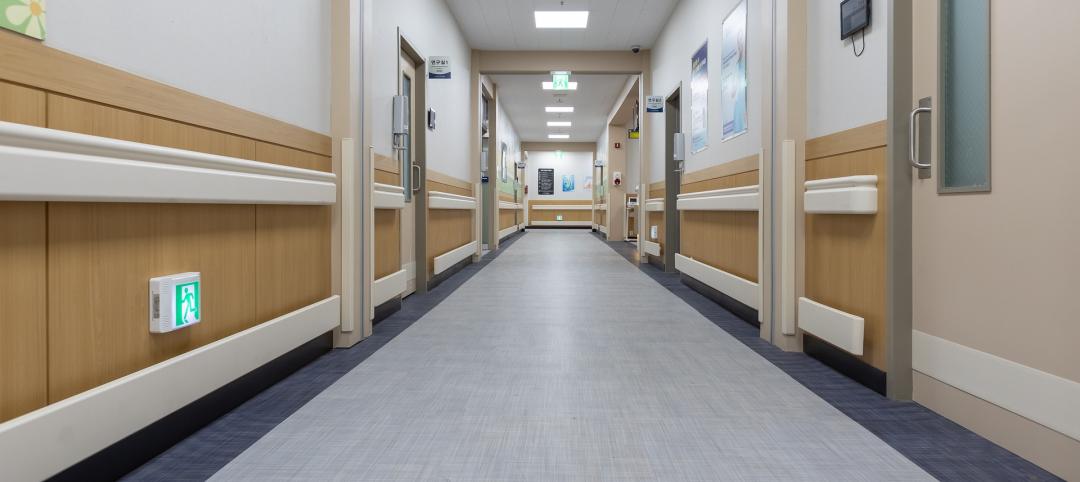WASHINGTON, D.C.--(ENEWSPF)--November 30, 2010. During a live online chat at the White House earlier today, U.S. Energy Secretary Steven Chu announced that 24 projects are receiving a total of $21 million in technical assistance to dramatically reduce the energy used in their commercial buildings. This initiative, supported with funding from the American Recovery and Reinvestment Act, will connect commercial building owners and operators with multidisciplinary teams including researchers at DOE's National Laboratories and private sector building experts. The teams will design, construct, measure, and test low-energy building plans, and will help accelerate the deployment of cost-effective energy-saving measures in commercial buildings across the United States.
"These Recovery Act projects are bringing together experts from our National Laboratories and the private sector to help businesses and organizations reduce the energy they use in their facilities, saving them money on their energy bills and making them more competitive economically," said Secretary Chu. "This initiative will also demonstrate to other commercial building operators that cost-effective, energy-efficient technologies exist today that will help lower the operating and energy costs of their buildings."
Through DOE's Commercial Building Partnerships, teams comprised of private sector technical experts and personnel from National Laboratories will help guide projects to achieve 30 percent measured energy savings in existing buildings and 50 percent energy savings in new construction projects. About half of the two dozen projects focus on energy efficiency upgrades for existing buildings. The three-year projects will provide comprehensive business and technical case studies for broad publication, including actual energy performance data from the completed projects, to help spur wider adoption of energy-efficient building practices across the industry.
The projects are funded with a public/private cost-sharing agreement, where the building owners and operators contribute at least 20 percent. Building owners and operators do not receive direct funding through the project, but instead get access to state-of-the-art technical guidance to implement energy efficiency technologies throughout the design, construction, and evaluation phases of their building and retrofit projects. This technical expertise includes energy modeling and energy performance verification by laboratory researchers and private sector experts.
The selected building owners and operators benefit by learning about measures they can apply across their extensive building portfolios. The use of private sector consultants and National Laboratory experts helps ensure that the energy efficiency measures and lessons learned in the projects will be quickly adopted by the marketplace.
Three DOE National Laboratories-Lawrence Berkeley National Laboratory (LBNL), the National Renewable Energy Laboratory (NREL), and the Pacific Northwest National Laboratory (PNNL)-will manage the effort and provide technical assistance for the selected projects. The aggressive energy efficiency design goals for each project include reasonable returns on investment and must meet other business criteria established in collaboration with the partners.
Each project will receive technical assistance valued at between $200,000 and $1.2 million, depending on the scope and nature of the plan. The following is a list of the selected projects:
* Cascadia Center for Sustainable Design and Construction; The Bullitt Foundation; Seattle, Washington
* Center for Alternative, Renewable Energy, Technology and Training; Clark Atlanta University; Atlanta, Georgia
* The College of Architecture + Planning at the University of Utah; Salt Lake City, Utah
* The Defense Commissary Agency; Lackland Air Force Base; San Antonio, Texas
* Grand Valley State University; Allendale, Michigan
* Hines; Somerset, New Jersey
* The Home Depot; Rocklin, California
* Living City Block; Denver, Colorado
* The LOOP at the University of California; Mesa Lane Partners; Santa Barbara, California
* Long Beach Gas and Oil; Long Beach, California
* Massachusetts Institute of Technology; Cambridge, Massachusetts
* Oregon Built Environment & Sustainable Technologies Center; Portland, Oregon
* Shy Brothers Farm; Westport, Massachusetts
* Sierra Nevada Job Corps; Reno, Nevada
* Smart Grid Development; North Kingstown, Rhode Island
* Twentieth Century Fox Film Corporation; Los Angeles, California
* University of California Merced; Merced, California
* University of South Carolina; Columbia, South Carolina
* U.S. Army; Fort Bragg, North Carolina
* U.S. General Services Administration; Portsmouth, New Hampshire
* U.S. General Services Administration; Region 9 locations
* U.S. General Services Administration; San Francisco
* Walmart; two locations to be determined
During the selection process, each building owner or operator submitted plans for designing a new building or upgrading existing buildings and committed to working with National Laboratories and technical experts. Project selection criteria included the likelihood of achieving significant energy savings, the probability of success, widespread deployment potential, contribution to a diverse DOE portfolio of energy-saving solutions, and the organizations' commitment to improving energy efficiency.
Learn more about Commercial Building Partnerships and other projects that are part of DOE's Building Technologies Program.
Related Stories
Government Buildings | May 10, 2024
New federal buildings must be all-electric by 2030
A new Biden Administration rule bans the use of fossil fuels in new federal buildings beginning in 2030. The announcement came despite longstanding opposition to the rule by the natural gas industry.
Sustainable Development | May 10, 2024
Nature as the city: Why it’s time for a new framework to guide development
NBBJ leaders Jonathan Ward and Margaret Montgomery explore five inspirational ideas they are actively integrating into projects to ensure more healthy, natural cities.
Mass Timber | May 8, 2024
Portland's Timberview VIII mass timber multifamily development will offer more than 100 affordable units
An eight-story, 72,000-sf mass timber apartment building in Portland, Ore., topped out this winter and will soon offer over 100 affordable units. The structure is the tallest affordable housing mass timber building and the first Type IV-C affordable housing building in the city.
Architects | May 8, 2024
Ivan O’Garro, AIA joins LEO A DALY as a vice president
Integrated design firm LEO A DALY welcomes Ivan O’Garro, AIA, as a vice president and managing principal of its Atlanta studio.
K-12 Schools | May 7, 2024
World's first K-12 school to achieve both LEED for Schools Platinum and WELL Platinum
A new K-12 school in Washington, D.C., is the first school in the world to achieve both LEED for Schools Platinum and WELL Platinum, according to its architect, Perkins Eastman. The John Lewis Elementary School is also the first school in the District of Columbia designed to achieve net-zero energy (NZE).
Healthcare Facilities | May 6, 2024
Hospital construction costs for 2024
Data from Gordian breaks down the average cost per square foot for a three-story hospital across 10 U.S. cities.
Biophilic Design | May 6, 2024
The benefits of biophilic design in the built environment
Biophilic design in the built environment supports the health and wellbeing of individuals, as they spend most of their time indoors.
MFPRO+ Special Reports | May 6, 2024
Top 10 trends in affordable housing
Among affordable housing developers today, there’s one commonality tying projects together: uncertainty. AEC firms share their latest insights and philosophies on the future of affordable housing in BD+C's 2023 Multifamily Annual Report.
Retail Centers | May 3, 2024
Outside Las Vegas, two unused office buildings will be turned into an open-air retail development
In Henderson, Nev., a city roughly 15 miles southeast of Las Vegas, 100,000 sf of unused office space will be turned into an open-air retail development called The Cliff. The $30 million adaptive reuse development will convert the site’s two office buildings into a destination for retail stores, chef-driven restaurants, and community entertainment.
Codes and Standards | May 3, 2024
New York City considering bill to prevent building collapses
The New York City Council is considering a proposed law with the goal of preventing building collapses. The Billingsley Structural Integrity Act is a response to the collapse of 1915 Billingsley Terrace in the Bronx last December.
















